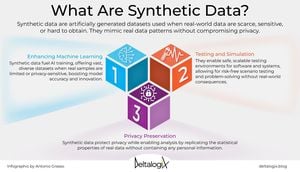The online gaming world is undergoing significant changes, particularly when it involves the ways developers monetize their products. Gone are the days when players were solely bombarded with one-time purchase prices or classic pay-to-play models. Now, as technology gallops forward and gamer expectations evolve, the industry is pivoting toward various innovative revenue streams. This narrative dives deep, exploring the shifting sands of online gaming monetization and the key developments shaping this thrilling adventure.
To understand the transformation, let’s first look at how popular games have shifted—most prominently from pay-to-play models to enticing free-to-play structures. A prime example of this evolution is Fortnite, which raked in over $9 billion within just two years, primarily from microtransactions alone. The beauty of the free-to-play model lies in its accessibility: any player can join without spending upfront, yet enticing them to spend on additional features or cosmetic items keeps the revenue flowing.
Interestingly, microtransactions were the bread and butter of the mobile gaming market, accounting for about half of its total revenue—$90 billion globally—in 2023. Players are often drawn to these limited-time and exclusive offers, allowing developers to recognize their content’s value through real-time engagement and persistence.
Next up is the rising tide of subscription-based gaming services. Figures from 2023 highlight industry giants like Microsoft’s Xbox Game Pass and Sony’s PlayStation Plus, which is seeing surges of subscriber interest, reporting over 30 million for Xbox alone. This shift showcases the attractiveness of ‘all-you-can-play’ services for regular fees. The power of subscription models is being boosted by advancements like cloud gaming technology—companies like NVIDIA and Google Stadia are making it easier to stream games smoothly, predicting the sector could grow to $13 billion by 2026.
What can also not be overlooked is the growth of advertising within games. 2023 was monumental, marking over $56 billion generated through clever ad placements embedded within popular titles, such as Apex Legends. Unique integrations, ranging from real-time product advertisements to partnerships with heavyweights like Nike and Marvel, have paved new revenue pathways. Events like Fortnite’s virtual concerts show just how immersive and lucrative such collaborations can be.
Digital ownership is another trend gaining momentum. Non-fungible tokens (NFTs) are not just buzzwords—they're actively reshaping how players buy, sell, and trade virtual assets. Games like Axie Infinity are illustrating this with reported revenues exceeding $1.3 billion, from trading characters and items using cryptocurrency. Even popular collectibles like NBA Top Shot have made waves, hitting $1 billion sales by 2023, demonstrating how tokenizing items can create real-world value.
Esports and competitive events are also making headlines as ever more profitable monetization strategies. Just look at the recent League of Legends World Championship—where prize pools exceeded $5 million. The esports industry is projected to surpass $1.8 billion by 2025, with event sponsorship, merch sales, and ticket sales adding to the revenue streams. The surge of betting on esports competitions adds another potential income pathway, with projections estimating this market reaching $24 billion by 2028.
With the continuous quest to captivate players, game developers have embraced game-enhancing features and premium content. A case study is Call of Duty: Warzone which generated around $1.9 billion through seasonal content expansions and battle passes, showcasing how thematic events rewarding limited-time offers keep players returning, eager to participate and invest.
Valve’s Steam Community Market exemplifies the rising trend of player-to-player economies. With sales exceeding $1 billion just last year, players can buy and sell game items, thereby forming their own marketplaces within the gaming sphere. There are also partnerships with online betting services, linking traditional gambling with the online gaming experience.
Meanwhile, Virtual Reality (VR) and Augmented Reality (AR) gaming are anticipated to spur future monetization avenues, with the VR market expected to surge to $53 billion by 2028. The popular game Pokémon GO is already demonstrating success—reaching $6 billion lifetime earnings through well-crafted, location-based experiences.
Crowdfunding has emerged as another dynamic model where gaming communities directly support projects through funding platforms, raising over $400 million for independent games over the past year. Successful titles like Divinity: Original Sin II and Shovel Knight are testaments to how player involvement can drive projects forward. Game developers increasingly incorporate community feedback during development, fostering collaborative environments.
Data analytics takes center stage too, shaping the future of personalized monetization. By tracking player behaviors, developers can curate more enticing, targeted offers, contributing toward conversion rates climbing by 20%. This enables creators to optimize their prices and game features based on actual engagement patterns.
Looking toward the horizon, the future seems bright yet demanding for game developers. They need to continuously adapt to the changing player expectations by diversifying monetization strategies. It’s not solely about maximizing profits but ensuring the player has an enriching and enjoyable experience. This continuous blend of traditional revenue models with modern tech-centric initiatives will shape the future gaming monetization ecosystem, promising engaging gameplay along with sustainable business models.
Whether it be through new features, engaging content, innovative technologies, or collaborative platforms, the gaming industry stands on the brink of transforming itself beyond what previous generations of gamers thought was possible. It truly is about blending fun with financial sustainability—creating opportunities for players and developers alike to flourish.
With everything mentioned, one might ponder: has the race for revenue through evolved gaming mechanisms drawn lines where creativity and user experience might clash? Only time will tell as the gaming world continues to evolve at breakneck speeds.



